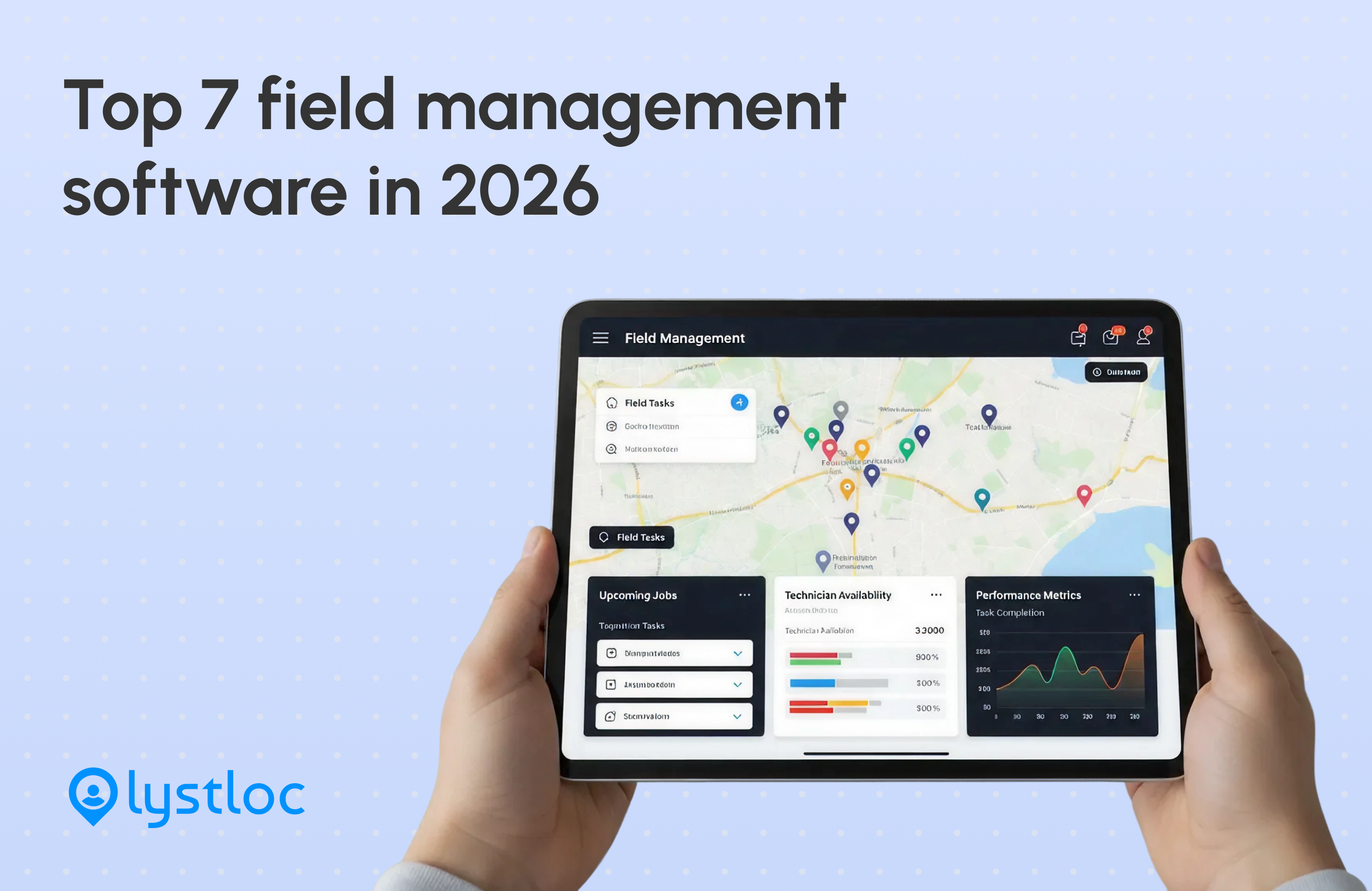
Top 6 Signs of Burnout in Field Teams – And How Managers Can Spot Them Early
Table of Contents
You know there’s a slight difference between ‘being tired’ and ‘being burnout’.
You can sip a cup of coffee, 10-minute work around your workspace, or take short breaks every 2-3 hours, just to feel refreshed.
You know it works when you feel tired. But when burnout? Nothing may work for you.
Well, the same goes for your field employees too. Reasons?
- Unmanageable amount of work and its stress is on the rise
- Over passion is killing the desire to work
- Employers aren’t doing enough to minimize it
Deloitte’s report on workplace burnout survey discloses that. And, there could be more different reasons beyond what is mentioned.
Burnout isn’t always visible. But once it spirals, it doesn’t just eat into morale – it eats into your bottom line. If the effect gets more severe than you think, your business progress may not probably be going to run very smoothly. Sorry.
So before it gets too late for you to know, let’s understand what could be the signs of employee burnout and how you can cook up a smarter approach to resolve them.
Let’s get started!
6 warning signs of field employees’ burnout that managers must eye on
So, first up – what differences you must measure when things go common beyond some specific isolated individuals?
#1 Not so communicative as earlier
You might have some field reps who never make you feel like waiting in a queue, instead, updating you about every single step before you ask. But what if they’re either keeping themselves in isolation or giving just a one-liner response in ‘yes’ or ‘no’? When stress levels are too strong to cause emotional exhaustion, field reps’ lower level of communication rises before other physical symptoms.
#2 An unexplained rise in missed deadlines
Everyone has bad days and they drop the ball once in a while – that’s common. But when pattern forms – visits are missed, reports are delayed or error-prone, client follow-ups vanish frequently – understand you might be failed in managing your field teams’ performance because you’re dealing with unknown reasons for their struggle and of course, chronic fatigue.
#3 Reluctance to contribute to commitments
If your field folks get stained at work, they’ll avoid taking on new or urgent responsibilities of client engagement. Instead, they start ghosting, or excuse themselves by saying they might not be the right fit for this task – they’ll sound logical in every possible way. If it happens, understand that they are not just disinterested, but mentally burned out and trying to do the bare minimum to survive.
#4 Worsening quality of work and performance
Think of your field reps who earlier showed enthusiasm in handling territory-based lead management activities very smoothly. Because of them, your customers just don’t feel impressed, but they become your loyal advocates. But now, the same field folks are causing the reason for your customers’ dropouts. Doesn’t it sound like poor quality of field performance? Your reps’ quality of performance can dip when they mentally wear and tear – just don’t ignore it.
#5 Cynicism or regular negative commentary
Cynicism often starts with feeling let down, betrayed, or distrustful about something that isn’t going well. And, if your field employees begin expressing skepticism about their role, clients, or leadership often sarcastically or passively, or, generally see the silver lining is usually being negative. Then, you’re dealing with a rebel who can spread negativity, quit quietly, and even influence your most trustworthy people out of your organization.
#6 A consistent absenteeism
Last but not least, a rising sign of your field employees could be consistent absenteeism. Those who are facing burnout or dealing with chronic trauma or stress, often feel demotivated to show up regularly or timely. Instead, they can often take long sick leaves, short casual leaves, do last-minute dropouts, come in late or leave early to avoid interaction, or just be MIA (Missing in Action) on field schedules – it could be anything that you must know.
The antidote to resolve field employees’ burnout that managers can apply
Let’s cut the fluff, and only talk about the practical fix, if you really do care. Here’s what you can do:
Lean on productivity hacks to spark new ideas of employees’ interest
Burnout thrives in monotony. It’s not always about ‘to-do overload’ – sometimes, it’s about the same old to-dos in chunks every day. While new ways of working won’t be a silver bullet to spark employee engagement and efficiency, going with productivity hacks can be a new motivation for them, which could be,
- Time blocking: Encourage your field folks to reserve blocks of time for deep work, limiting calls unless absolutely urgent.
- Take short breaks: Whether it’s between territories, long routes, or every couple of hours – allow your reps to rest. Let them know it’s monitored, but reassure them it won’t reflect poorly.
- Gamification: Introduce small reward systems. Even a simple ‘Top Closer of the Week’ badge on your internal platform can spark motivation.
You don’t need a big budget for these steps – just an intentional internal structure that shows your field employees you care. The rest? They’ll take care of it.
Build a difference between important and urgent tasks
We all know, maintaining project deadlines is important, but it must not raise the false sense of urgency, making employees crazier. If your field team is already burned out due to this, go slow with Eisenhower Matrix (a proven prioritization framework), and break down responsibilities as follows:
- Urgent & important: Do it now.
- Important, not urgent: Schedule it.
- Urgent, not important: Delegate it.
- Neither: Trash it.
Be manageable with your moves and take a collective ‘deep breath of relaxation’ while resetting the responsibilities with Lystloc.
- Use this software to schedule tasks, track and monitor utilization rates, and build buffer time into schedules to make field employees rest.
- Utilize dynamic modules to frame location and lead-based work schedules.
- By using custom forms and fields, edit/reschedule/hold on to overall time-based responsibilities.
- Send task reminders to your field reps and help them stay out of rush on field task management.
- Evaluate daily field reports to know about performance and make a data-driven decision to uplift employee engagement.
Make time-off conversations as a part of your regular check-ins
Let’s be honest, managers still make time off a taboo for many field reps. But best managers, think beyond it, they genuinely invest in field employees’ schedules and check-ins and make them enjoy paid time off.
According to Gallup, teams with managers who check in weekly (not just monthly) see 63% lower burnout. That’s huge.
Like them, you can make a difference. Delve into open communication without judgment, and know whether they really need a light week in the upcoming month. It means you realize your team vacation is important for their physical and mental health similar to showing up fresh in client meetings.
This is beneficial. In one way, you’ll get to know who else can carry over extra responsibilities when someone is absent, in another way, a short vacation can cause a mental distance and make your field folks come with a fresh strategic perspective.
Don’t wait for breakdowns.
Lead by example and be the cause of your field employees’ winning
Your frontier workers – field employees, are the backbone of your customer’s happiness. If your employees are gone through fatigue, stress, or trauma, and remain prone to frequent burnouts, you’ll not only lose their interest but fail in customer satisfaction.
And, in a volatile market, where retaining employees is super hard, you can’t afford to not pay attention to them. So, before opportunities slip out, take steps to improve their well-being.
Of course, in this process, you’ll need to monitor and analyze your field employees’ in and out, so short this task by combining utmost simplicity with Lystloc. Let’s have a free 7-day trial with Lystloc to measure success!









